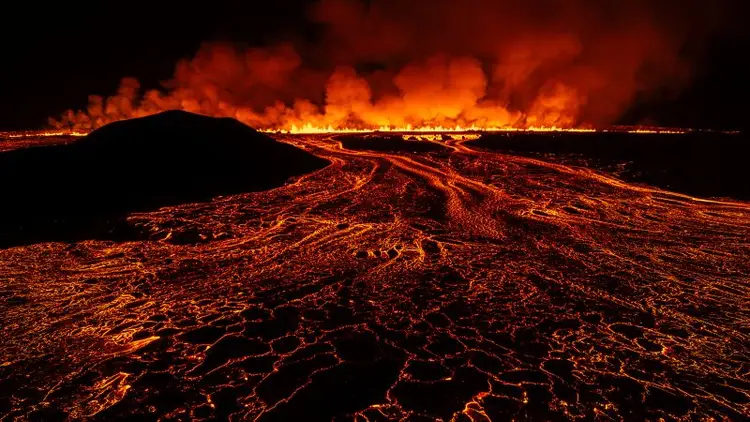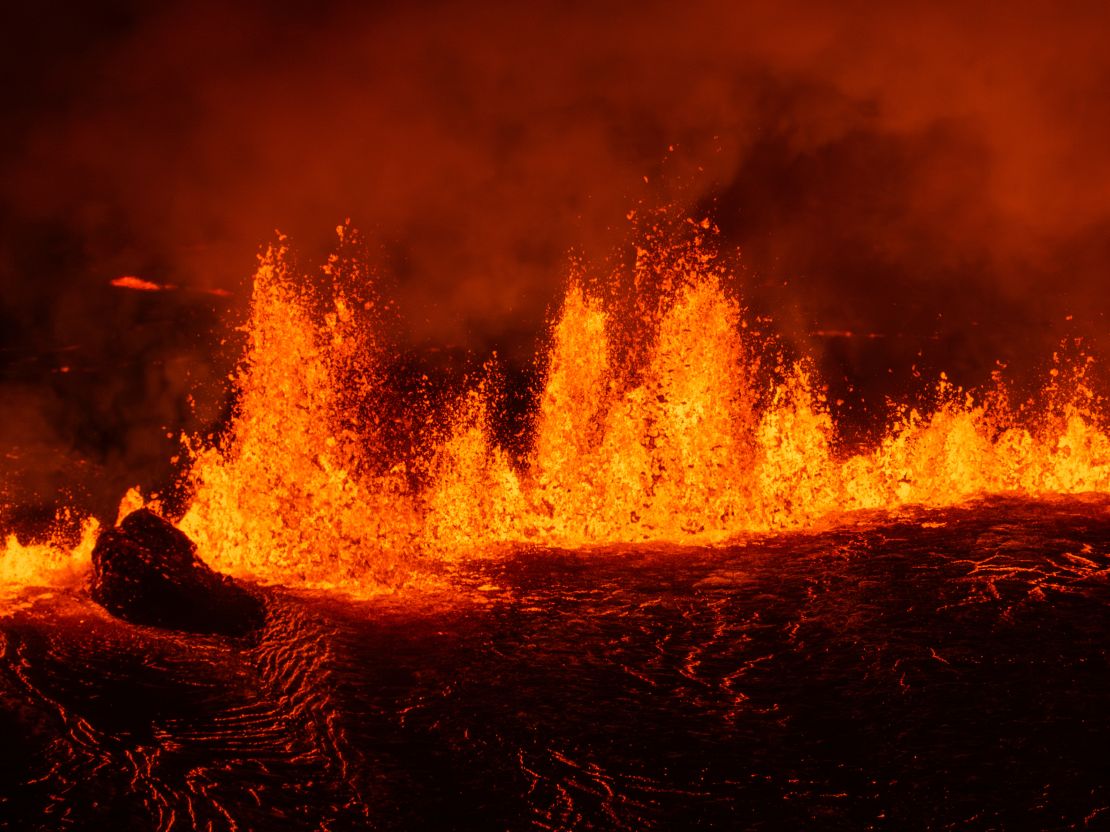Iceland volcano erupts for the seventh time in a year | CNN

A volcano close to Iceland's capital erupted on Wednesday night, marking the seventh eruption in the region since December.

The crack on the volcano in Iceland’s Reykjanes Peninsula, situated in the southwest of the nation, is believed to be around 3 kilometers (1.9 miles) long, as reported by the Icelandic Met Office.
The volcanic eruption started just after 11 p.m. local time on Wednesday. A update from the Met Office three hours later indicated that the crack appeared to have stopped growing.
On Thursday, flights to and from Iceland were running smoothly, as reported by the country’s official tourism site. They noted that the recent eruption was much less intense than the previous one that took place on August 22, when a fissure measuring 4 kilometers (2.5 miles) opened up in the same region.

A geothermal energy facility and two hotels at the renowned Blue Lagoon had to be evacuated. Over the past year, the Blue Lagoon has had to shut down several times because of volcanic activity.
"The recent eruption is occurring in the same location as the previous one in August of this year. According to Snorri Valsson, a representative from the Icelandic Tourist Board, the town of Grindavík is safe from any lava flows," he shared with CNN on Thursday.
“This was anticipated. The small number of residents—about 60—have been relocated, along with the Svartsengi Power Plant and the two hotels near the Blue Lagoon. Fortunately, the Blue Lagoon was empty since the incident occurred after it had closed for the day.”
Since January 2020, the Reykjanes Peninsula in Iceland has experienced 10 volcanic eruptions.
Iceland is home to almost 400,000 residents and is known for being one of the most volcanically active places on the planet. It sits on the ever-active geological boundary separating North America and Europe. Just last year, the country recorded over 1,000 earthquakes within a single day.













































